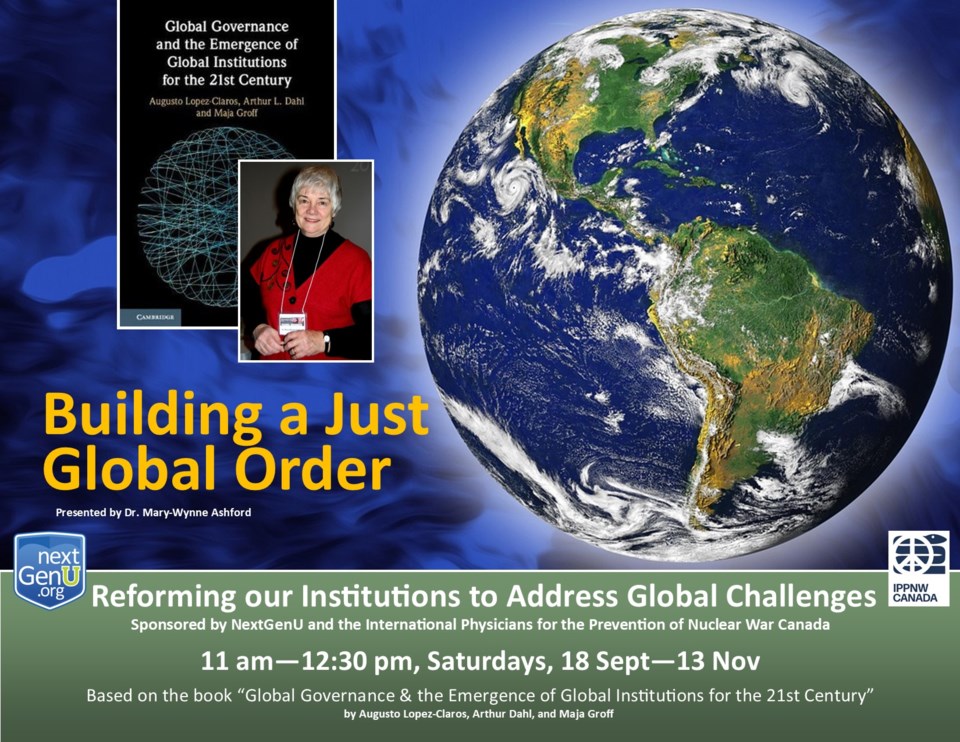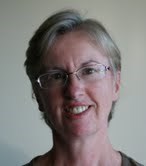 On Monday, August 9, with fires raging in Europe, Siberia and here on our doorstep, the UN called a ŌĆ£Code Red for humanityŌĆØ. "The alarm bells are deafening," said Secretary-General Ant├│nio Guterres. As accustomed as we are to crises, I recall the shock of the starkness of his statement, interpreting the several thousand-page IPCC report as ŌĆ£a death knell for coal and fossil fuels, before they destroy our planet."┬Ā
On Monday, August 9, with fires raging in Europe, Siberia and here on our doorstep, the UN called a ŌĆ£Code Red for humanityŌĆØ. "The alarm bells are deafening," said Secretary-General Ant├│nio Guterres. As accustomed as we are to crises, I recall the shock of the starkness of his statement, interpreting the several thousand-page IPCC report as ŌĆ£a death knell for coal and fossil fuels, before they destroy our planet."┬Ā
I happened to be meeting the next morning with Dr Mary-Wynne Ashford. In 2020 we had begun a small study group on the governance changes needed for humanity to deal with current global threats. The result was a well-received online course presented by Mary-Wynne,┬Ā,┬Āwith a new version scheduled to start September 18th.╠²
ItŌĆÖs been a breath of fresh air learning about the cooperative forces that are quietly countering the crushing weight of catastrophic news. Each impending crisis, accompanied by the glacially slow move towards political integration, is a bad news/good news story on steroids.╠²
The most worrisome part is that although international governance is traditionally the domain of the UNŌĆÖs 193 nations, many are stuck in ŌĆ£my country firstŌĆØ mode, having yet to recognize their national interests as dependent upon our collective well-being. The good news is that in recent decades, thousands of civil society organizations have cropped up across the globe, bringing a huge, often young depository of talent and passion to the world stage.╠²
They┬Āhave an increasing and much-needed presence at almost all international conferences. Taken together, civil society organizations have an estimated volunteer work force of 350 million, not including another 54 million full-time equivalent workers. Operating expenses of civil society organizations are greater than the GDP of all but the six wealthiest nations.╠²
Since the first conference on the environment in Stockholm in 1972, there have been approximately 1500 environmental frameworks, treaties, agreements and bodies, albeit with some notable gaps, such as the lack of a convention on plastics or forests. In 2017, about 100 jurists from around the world (including David Boyd of UBC) developed a Global Pact for the Environment to consolidate and harmonize legislation and bring about the first legally-binding international treaty on the environment as a whole. In 2018, UN nations voted heavily in favour of the resolution, initiating the process of adoption by individual nations and eventual ratification.╠²
We may scream that there isnŌĆÖt time for all this. Perhaps the Code Red report will expedite the process. The Global Pact for the Environment, proposing mandatory rights and duties, may prove comparable to Eleanor RooseveltŌĆÖs campaign for the Universal Declaration of Human Rights. During a time ruled by men who sought mainly to preserve their prestige, her vision, too, was that the newly birthed document would ensure justice for all.
ŌĆ£Let your vision be world-embracingŌĆØ, is an injunction in the Bah├ĪŌĆÖ├Ł writings that seems especially pertinent at this moment.╠²
ŌĆ£Blessed and happy is he that ariseth to promote the best interests of the peoples and kindreds of the earth.ŌĆØ ŌĆō Bah├ĪŌĆÖuŌĆÖll├Īh
Responsibility, collaboration, selflessness, justice, these are all needed to bring humanity back from the brink. They inspire┬Āmultitudes of people who work tirelessly behind the scenes on our behalf.╠²Such humanitarian values have undergirded every spiritual system, as Eleanor Roosevelt knew well. They need to again work their magic.╠²
 Sheila Flood is the E.D. of the Victoria Multifaith Society and member of the Bah├ĪŌĆÖ├Ł community.╠²┬Ā┬Āis a weekly online course with free registration at NextGenU.org, running nine Saturdays from 18 September, from 11am to 12:30pm.
Sheila Flood is the E.D. of the Victoria Multifaith Society and member of the Bah├ĪŌĆÖ├Ł community.╠²┬Ā┬Āis a weekly online course with free registration at NextGenU.org, running nine Saturdays from 18 September, from 11am to 12:30pm.
You can read more articles on our interfaith blog, Spirituallly Speaking, HERE
* This article was published in the print edition of the sa╣·╝╩┤½├Į on Saturday. September 4th 2021


